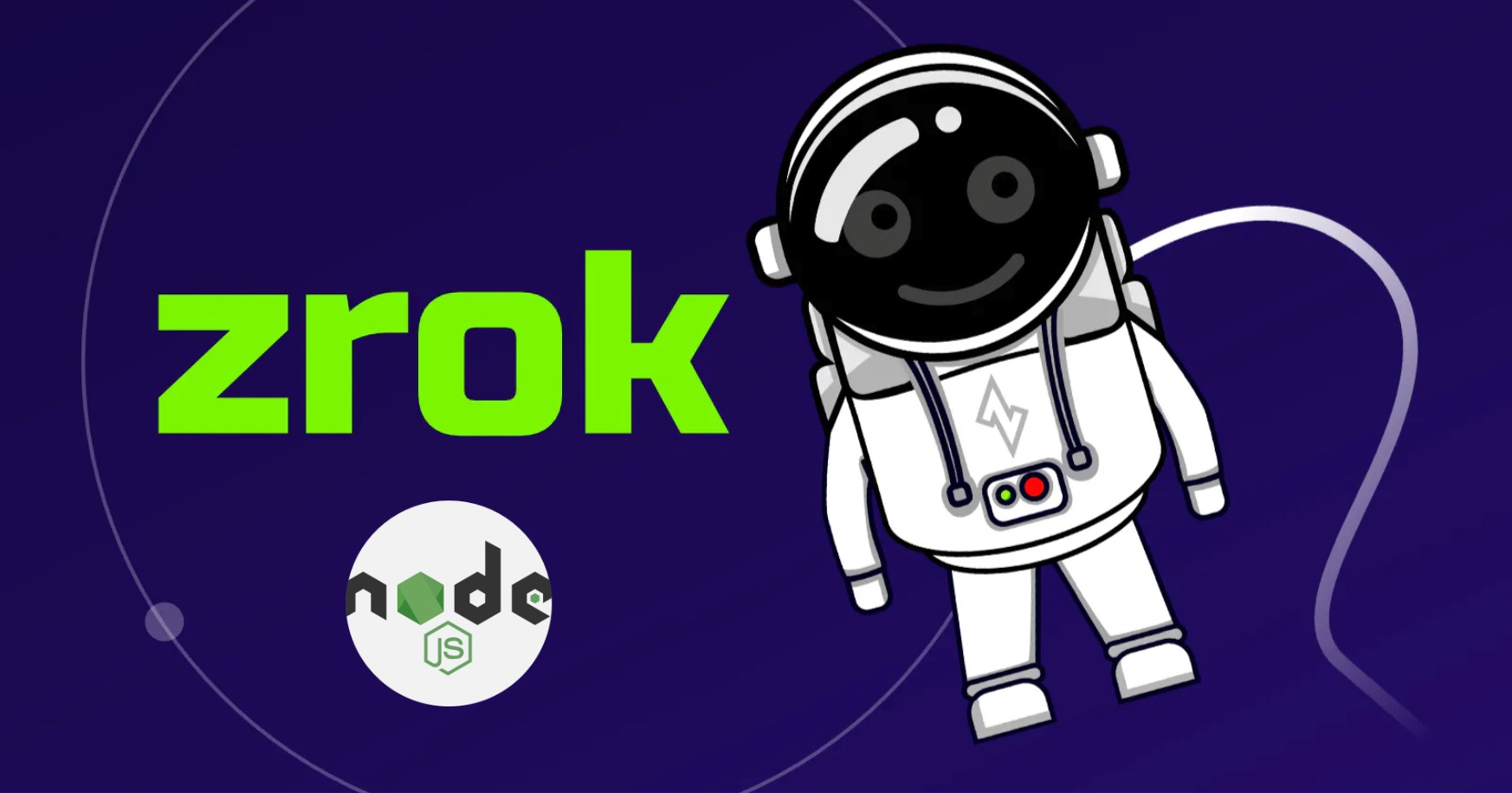The NodeJS zrok SDK
 Curt Tudor
Curt Tudor
You may be familiar with zrok, the open-source solution built on OpenZiti, which makes it very easy to securely share resources over the internet. If you are already a zrok fan, that's great news -- Thank you for being part of our community!
If zrok is new to you, please check out this post introducingzrok.
zrok is built to enable developers to seamlessly and securely share their applications (we previously released our zrok Golang SDK, and our zrok Python SDK). Using just a little code enables you to share your app through zrok's robust network.
Today we are excited to expand our zrok SDK philosophy by introducing a NodeJS SDK (available as of zrok 0.4.30), and that is what we'll discuss in this article.
The package is published as @openziti/zrok
We will be spinning up a local HTTP server to be served via zrok!
If you want to follow along you'll need to have a zrok environment set up. If you don't want to self-host you can sign up for a free account at https://zrok.io.
Check out the Getting Started guide for more information.

Expanding into NodeJS
Here is all it takes to spin up a zrok-enabled web server using Express:
let root = zrok.Load()
await zrok.init( root ).catch(( err: Error ) =>
{ console.error(err); return process.exit(1) });
let shr = await zrok.CreateShare(root,
new zrok.ShareRequest(
zrok.PROXY_BACKEND_MODE, zrok.PRIVATE_SHARE_MODE,
"http-server", ["public"])
);
console.log(`access remotely using: 'zrok access private ${shr.Token}'`)
let app = zrok.express( shr.Token );
app.get('/', function(_: Request, res: any){
res.write(`Hello zrok!`)
res.end()
});
app.listen(undefined, () => {
console.log(
`private HTTP Server is now listening for incoming requests`
)
})
Let's quickly go over what's happening here:
First, we use the zrok object to load the root config and initialize, and then we're off to the races.
We create a private zrok share, and then we call zrok.express using the share token we just created.
This zrok.express call spins up a NodeJS Express server, however, the Express server is transparently instrumented by the zrok SDK (and its embedded Ziti SDK for NodeJS) to enable the Express web server to "bind" (i.e. host) the Ziti Service represented by the zrok share.
In other words, the NodeJS Express web server does NOT listen on an open TCP port as traditional NodeJS Express servers do (because that's way too insecure).
Instead, a zrok-enabled NodeJS Express server listens ONLY for incoming Ziti connections to the private zrok share (because zero-trust connections are now considered best practice, and this is how the most robust security is done these days).
The SIGINT handler at the end just handles a CTRL-C event, and tears down the zrok share.
The above example employs a private share. You can opt to use a public share if you like; in that case, you can find it here.
To expand this example from here you would simply declare any routes your app wants to expose and it's just like producing a typical Express server. No additional complications!
Why Though?
The primary reason is we want this to be easy.
Sharing what you make should be painless. You develop the application -- let zrok handle all the security complications.
Plus you can deploy your application anywhere. As long as the environment can reach the zrok host controller, it can run wherever you want it to.
It can live in a container, cloud-hosted, or even run nicely on a home server, or dev laptop.
Coming Attractions (zrok+BrowZer)
Since the above example talks about sharing an Express web server over zrok, I would be remiss if I didn't mention something exciting we will release soon that will alleviate a few friction points.
To illustrate, today if you want to spin up a web server on your laptop and then share it privately with someone, the person you are sharing it with will need to:
download the
zrokbinary, thenexecute a specific
zrokcommand (which starts a local HTTP listener), thenpoint their browser at that HTTP listener (typically running at
http://127.0.0.1:9191)
The above technology certainly works in many scenarios, but there are use cases where it may not...
For example, it's possible that the person you are sharing your local web server with is not tech-savvy (e.g. my grandmother) and they can't successfully obtain and/or run the zrok commands on their client.
Another use case is when the remote person can't install new tooling on their machine due to a lack of permission (e.g. IT restrictions). Or they can, but they elect not to.
Another use case is when you want to share your web app with someone who wants to access it on their mobile phone (where zrok binaries simply can't be installed).
The above use cases could be supported perfectly if only you could share a (magic) URL with the people you want to share your private web server with. This is because every laptop and mobile phone already has a ubiquitous web browser, so your friends, family, and colleagues already have what they need...except the URL...
So what's this magic URL, and what makes it "magic"?
The URL you will share with people will resemble this: https://<SOME_SHARE_TOKEN>/zrok.browzer.cloudziti.io
(SOME_SHARE_TOKEN is produced by your zrok share private command)
OpenZiti BrowZer provides the magic that ties everything together. We are currently testing this new zrok+BrowZer functionality and we will release it soon.
Once it has been shipped, we will be back here posting articles that discuss all the details, so be sure to subscribe to this blog's newsletter so you don't miss the announcements.
Moving Forward
Moving forward we want zrok to be as accessible as possible, both in options and ease of use. Support for more languages is coming! If you want to talk about languages to support or friction points, please reach out on Discourse!
Also if you like zrok or OpenZiti and want to support it, we would very much appreciate you dropping a star on both Github (zrok) / Github (OpenZiti).
It means a lot!
Subscribe to my newsletter
Read articles from Curt Tudor directly inside your inbox. Subscribe to the newsletter, and don't miss out.
Written by
